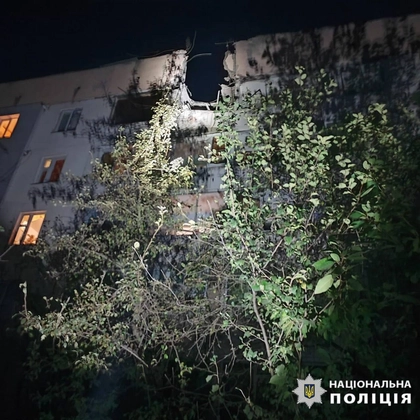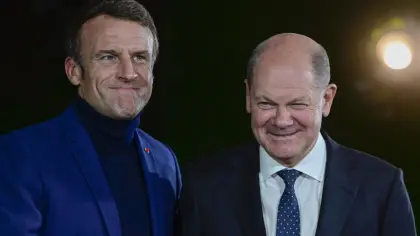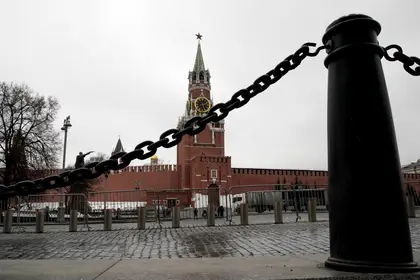Signs are growing that the crucial partnership between Germany and France is stumbling, experts say, just as Russia’s invasion of Ukraine and soaring energy costs place extreme stress on the EU.
Amid disagreements over energy, foreign policy, arms procurement and more, a joint cabinet meeting has been pushed back to January, while a parliamentary gathering of French, German and Polish MPs was cancelled at the weekend.
JOIN US ON TELEGRAM
Follow our coverage of the war on the @Kyivpost_official.
There have always been “difficult moments” in the relationship, said France’s former ambassador to China, Britain and Russia, Sylvie Bermann.
“But we’re clearly in a period of crisis, and the Franco-German relationship seems more strained than ever,” she said.
It did not help that the Ukraine war erupted when German Chancellor Olaf Scholz had barely taken office, with insiders saying French President Emmanuel Macron’s relationship with him is nothing like as warm as with former chancellor Angela Merkel, with whom he exchanged text messages daily.
Scholz and Macron are set to meet one-on-one in Paris on Wednesday following last week’s gathering of European leaders.
“There’s a necessary learning process” as Germany’s three-party governing coalition finds its feet, said Alexandre Robinet-Borgomano, a German politics expert at French think-tank Institut Montaigne.
“In future, the German government will have to build compromises with more dialogue, more connection with its European partners,” he added.

Kyiv Hit by Massive Drone Attack as Russian Strikes Target Multiple Ukrainian Cities
– Energy dust-up –
The Berlin-Paris axis has been the foundation of EU compromise for decades, and the bloc’s two biggest and wealthiest countries are still more critical since Britain’s departure.
Europe’s economic heavyweight Germany has sowed discord with plans for a national 200-billion-euro ($197-billion) energy subsidy, rather than an EU-wide agreement to cap prices.
“I don’t think it’s good for Germany or for Europe if it isolates itself,” Macron said last week of the plans, which smaller countries fear could drive up prices for them.
Ironically, the complaints from France and elsewhere come as Germany appears to be caving to long-standing demands, analyst Robinet-Borgomano said.
France has spent 10 years “firstly rebuking (Germany) for not spending enough on defence, for not having a strategic or geopolitical vision, and second rebuking it for staying stuck in austerity policy and spending no money”, he pointed out.
That’s “exactly what we’re complaining about today”, Robinet-Borgomano added.
Berlin “is investing more to stimulate growth and domestic demand, it’s taking on a leadership role and is building European defence” with massive new spending following Russia’s assault on Ukraine.
The energy subsidy dust-up was brushed under the carpet with an agreement for an energy price “roadmap” at last week’s EU summit.
France has also snubbed Germany’s pleas to build a new overland gas pipeline — known as MidCat — from import terminals in Spain and Portugal to European networks.
Instead, Macron last week announced an undersea pipeline from Barcelona to Marseille, with no timetable for completion or details of its funding.
– War means business –
Meanwhile in defence — a field where France and Germany have striven to display unity — differences have also been forced to the surface.
Paris has stayed out of a Germany-led plan for an anti-missile shield stretching across much of Europe, which has so far brought 14 countries including Britain, Belgium and the Netherlands on board.
One Macron adviser said France fears a “restart of the arms race in Europe”, and will stick to its own air defence systems.
Analyst Robinet-Borgomano suggested that Paris was in fact annoyed that the shield would use US- and Israeli-made equipment rather than a French-Italian alternative.
France “ought to have pushed for interoperability between systems to ensure European sovereignty, we can see that it’s about competing for leadership in European defence”, he said.
A still thornier issue is a plan to develop a German-French-Spanish next-generation fighter jet known as the Future Combat Air System (FCAS).
Contracts for the next phase of development on the plane, supposed to replace existing fleets of French Rafales and German and Spanish Eurofighters by 2040, have not yet been signed.
“There’s political agreement, but it’s jammed at the level of the companies,” one senior French official said.
French manufacturer Dassault “is afraid of losing its market position” if forced to work with competitor Airbus, they added.
You can also highlight the text and press Ctrl + Enter






